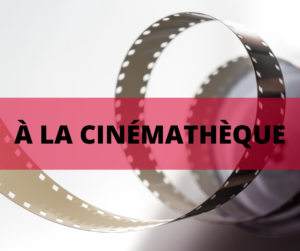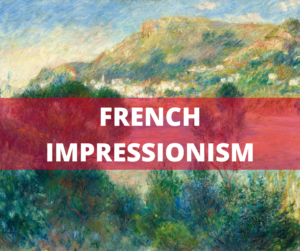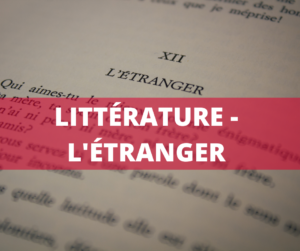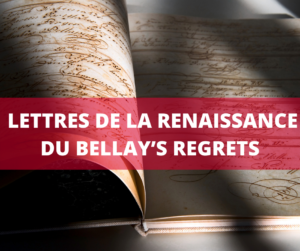Every session at Alliance Française brings a new opportunity to discover a unique element of French and Francophone culture, history, literature, or media. Here’s what’s on offer this spring!

Thursdays 6-7:30pm Online
In this B2/Advanced level course, Nacer will guide you in the study and analysis of the novel “Une vie de Boy” by Ferdinand Oyono, French speaking author from the Republic of Cameroon. “A boy’s life”, published in 1956, is classified in the current of African literature of French expression of the 1948-1960 period, i.e. before the independence of the vast majority of sub-Saharan African countries.
Wednesdays 6-7:30pm Online
Exploring French cinema with Mimi will allow intermediate level students to express their thoughts and opinions while expanding their vocabulary. Each class will feature a short clip of a classic film in French guaranteed to spark a conversation. Mimi begins from cinema’s beginnings with Guy-Blaché’s Les Résultats du Féminisme (1906) followed by Truffaut, Godard, Renoir and more.


Tuesdays 6:30-7:30pm Online
Leila uses documentary materials to develop listening, reading, speaking and writing skills to lead her students on a trip around the French-speaking world. Learn about the geography, language, and culture of France, French Polynesia, Ivory Coast, and her native Morocco.
Tuesdays 6-7pm Online
Discover French impressionism, the famous movement that turned the European art world on its head! Atlanta artist and Alliance Française teacher Vera Nercessian uses videos and visual presentations to introduce you to this movement, its origins and its legacy. Building their technical knowledge and French vocabulary, students will have lively conversations analyzing and discussing in detail some of the great works of the impressionist artists such as Monet, Degas, Renoir, Van Gogh and others.


Tuesdays 6-7pm Online
Within this present context of a global pandemic, this course provides French students the opportunity to develop the language skills to communicate effectively in a global health context. Building on students’ knowledge of French and their curiosity in medicine, it aims to deepen their understanding of French grammar and vocabulary in the context of global health, including specific thematic medical terminology. No book is required, as Jean-Marc provides authentic materials, such as newspapers articles and videos.
Tuesdays 6-8pm Online
Each week, Catherine will introduce you to an excerpt from a novel or to a poem from the 19th and 20th centuries. She will help you discover an author and explore an era, a school of thought or a fashion. You will develop your analytical, synthesis and reformulation skills and deepen your knowledge of the formal register (vocabulary, figures of speech, more complex syntax…)


Tuesdays 6-7:30pm Online
In this B2/Advanced level course, Nacer will guide you in the study and analysis of the famous novel ” L’Etranger ” by Albert Camus. The objective is to present and discuss together on the work of one of the greatest French writers of the 20th century. Nobel Prize for literature. The author of the “Stranger” is probably the most studied, most quoted and most well-known in the world. We will talk about the poor childhood of Albert Camus in Algeria, his first steps as a journalist and writer, his meeting and his differences with Jean Paul Sartre and his philosophy of the absurd, the comparison between Camus and Faulkner (Nobel Prize for Literature in 1949) , his position on the war of Algeria . We will have the opportunity to express your own opinion one of his major books: “the stranger “(l’Etranger).
Mondays 10-11:30am Online
In this advanced class, students will read, study and discuss a French novel while learning new vocabulary and developing expression in French. Bertrand has chosen the third book in the trilogy for this session: “ Le temps des secrets” de Marcel Pagnol.


Tuesdays 6-7:30pm Online
This ten-week class will focus on select sonnets from one of the most important poetic works of the French Renaissance. Published shortly after his stay in Rome, Joachim Du Bellay’s Regrets present the author’s satirical take on his experience of the papal city. They include ruminations on life at court, homesickness, friendship, artistic ambition, and, at times, downright complaining about his job as secretary to his uncle, the Cardinal Jean Du Bellay. Written in a lighter style than his classically inspired L’Olive, the Regrets take the form of papiers journaux, letters written to friends, which include, among others, the vastly famous, “Heureux, qui comme Ulysse…”.

